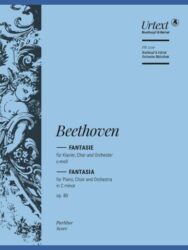Vltava (The Moldau)
No. 2 from the Symphonic Poem “My Fatherland” – Urtext

Composer: Smetana, Bedrich
Instrumentation: Orchestra
Editor: Pospisil, Milan
Brand Breitkopf and Hartel
What is also amazing is that the first text-critical edition prepared by the Czech Smetana expert Milan Pospisil in 1999, which had entailed an exhaustive…
Digital Download – PDF
Shipping costs: No shipping
R.R.P £51.00
Our Price: £43.35




